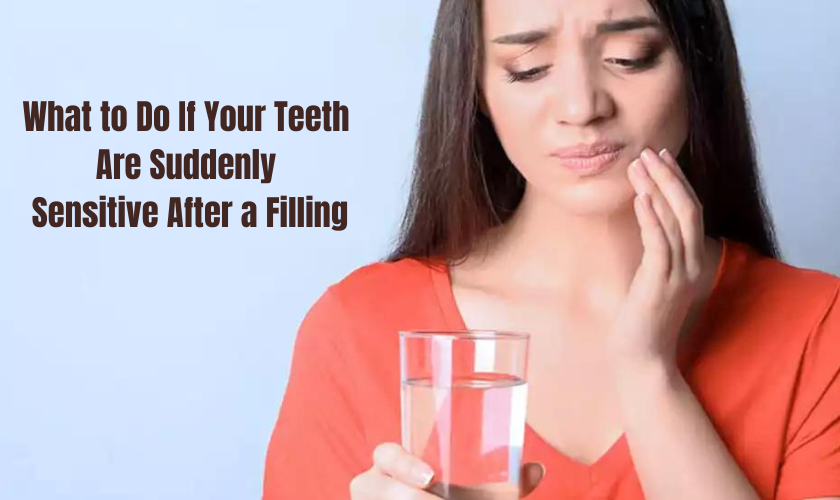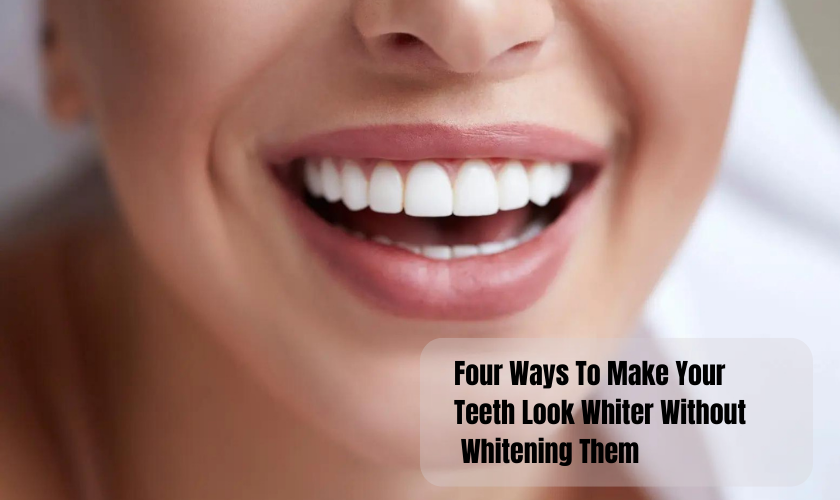When your teeth feel sensitive after a filling, it is usually the result of the dental material irritating tooth nerve endings. In this article, you will find out what to do if your teeth are suddenly sensitive after a filling.
If your teeth are suddenly sensitive after a filling, it is usually the result of the dental material irritating tooth nerve endings. You may experience this sensitivity to hot, cold, sweet, or acidic foods and drinks. The sensitivity may also be felt when you bite down or brush your teeth.
If you have sensitive teeth after a filling, there are a few things you can do to help relieve the discomfort. First, try using toothpaste for sharp teeth. These toothpaste contain ingredients that help to block the sensation from the tooth nerve endings. You can also try using a different toothbrush with softer bristles. Finally, avoid eating or drinking hot, cold, sweet, or acidic. If the sensitivity persists, contact your dentist to have the filling checked.
Different Reasons Your Teeth Could Become Sensitive
1. Your tooth may be sensitive to hot or cold temperatures.
2. You may have a cavity that is exposed and causing sensitivity.
3. The filling itself could be causing the sensitivity.
4. The nerve of your tooth may be damaged or infected. 5. You may have gum disease, which is causing the sensitivity.
6. The enamel on your teeth may be worn down, exposing the more sensitive dentin.
7. You could have a cracked tooth which is causing the sensitivity.
Tips to Prevent Sensitivity
If you’ve just had a filling and your teeth are suddenly sensitive, you can do a few things to help ease the discomfort. First, try using toothpaste for sharp teeth. These toothpastes contain ingredients that help to block out the sensations that can cause pain. You can also use a desensitizing rinse, which can help to coat your teeth and provide additional protection. If the sensitivity is severe, you may need to take an over-the-counter pain reliever until it subsides. In most cases, the sensitivity should go away within a few days. However, if it persists for more than a week or two, you should see your dentist to ensure there isn’t another problem.
If you’re hoping to avoid tooth sensitivity, taking care of your teeth and gums is a good idea. First, make sure you brush and floss regularly. Also, avoid eating or drinking anything acidic or sugary. These foods can wear away at the enamel on your teeth, which can lead to sensitivity. You should also see your dentist regularly for cleanings and checkups so that any problems with your teeth can be addressed as soon as possible.
Conclusion
If you’ve just had a filling and your teeth are suddenly sensitive, there’s no need to panic. In most cases, this is just an average side effect that will disappear within a few days. However, if the sensitivity persists or gets worse, it’s essential to contact your dentist so they can check the filling and make sure everything is okay. In the meantime, try using a desensitizing toothpaste and avoid eating anything too hot or cold until the sensitivity disappears.
When a filling is first placed, it’s not uncommon for the tooth to be slightly sensitive to hot and cold temperatures. This usually goes away within a few days as the tooth adjusts to the filling. However, if the sensitivity persists or gets worse, it’s essential to contact your dentist so they can check the filling and make sure everything is okay. In the meantime, try using a desensitizing toothpaste and avoid eating anything too hot or cold until the sensitivity disappears.




